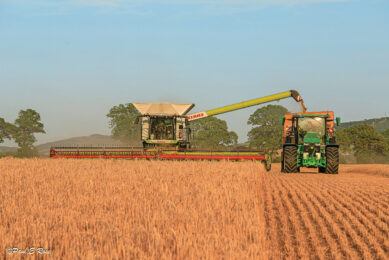U.S. sugar beet farmers pioneer autonomous transport from field to factory

The Minn-Dak Farmers Cooperative, owned by sugar beet growers in North Dakota and Minnesota, has become the first in the United States to deploy fully autonomous trailer trucks for the transportation of sugar beets.
The cooperative collaborated with Florida-based military company Kratos Defense to implement the innovative slave-follower system in their existing fleet of trucks, as reported by the American medium Agweek.
How it Works
- Utilizing Kratos Defense technology, the system operates on a slave-follower model, where a manned truck leads and another truck autonomously follows its movements.
- The trucks can seamlessly transition from autonomous to conventional driving modes. Upon arrival at the beet plant, the driver maneuvers to a dumping platform, unloads the cargo, and drives away. The driver can then manually operate the follower truck to position it on the platform. After unloading, the trucks can be electronically reconnected and resume autonomous operation.
- The autonomous system is designed for hauls of 200 miles or less, with Minn-Dak’s longest one-way trip being under 40 miles and covering a very limited number of routes.
Currently, Minn-Dak has permission to use autonomous trucks only in North Dakota, and an occupant is required in the truck. There is an expectation that the North Dakota Department of Transportation will allow follower trucks to operate without an occupant in the upcoming hauling season.
Catalyst for expansion
Minn-Dak Farmers Cooperative sees autonomous technology as a catalyst for expansion, providing the flexibility to grow in capacity and operational efficiency. The cooperative is optimistic about further approvals from regulators and the potential for broader autonomous applications in agriculture.
See also this film from Kratos
Join 17,000+ subscribers
Subscribe to our newsletter to stay updated about all the need-to-know content in the agricultural sector, two times a week.



